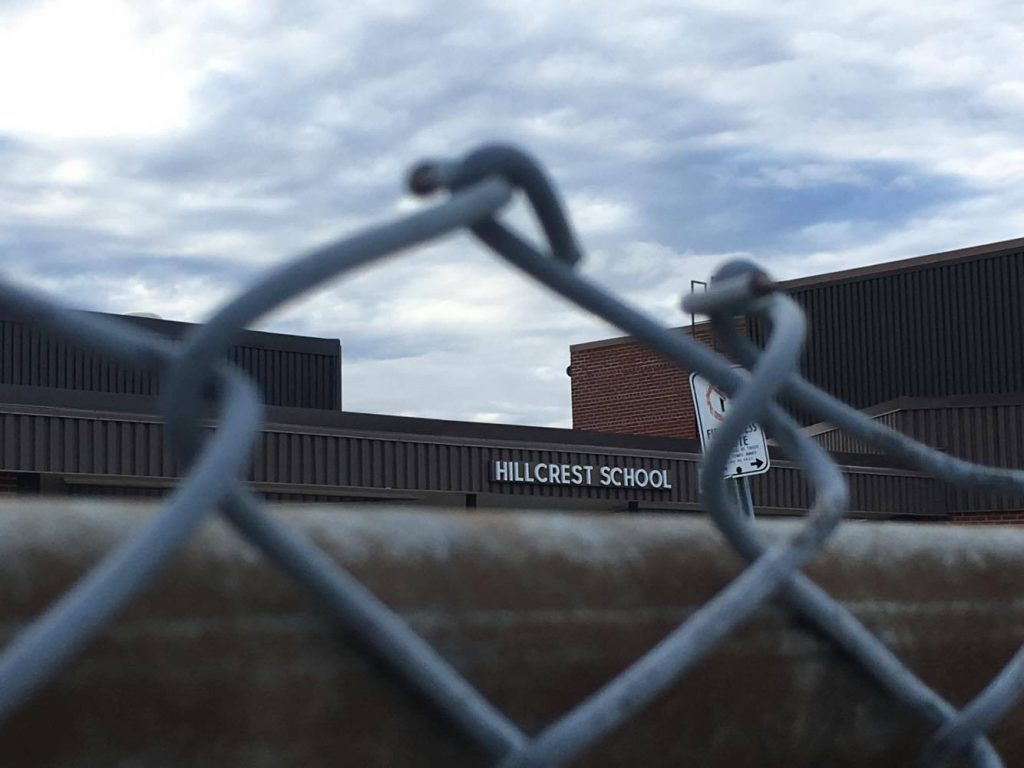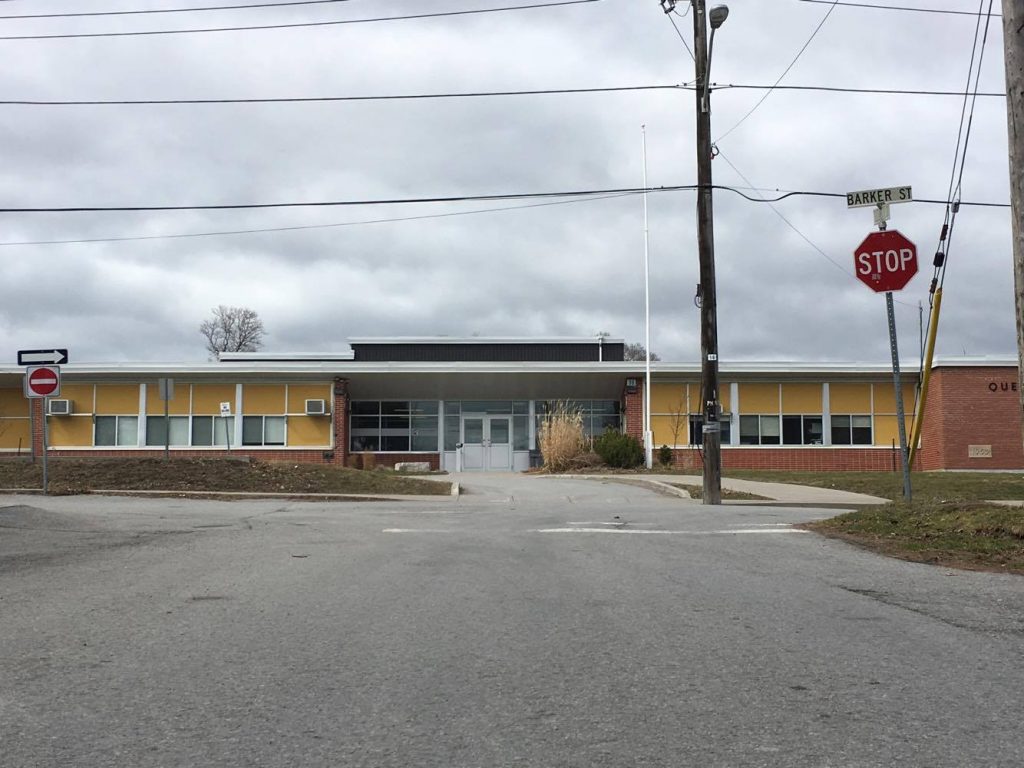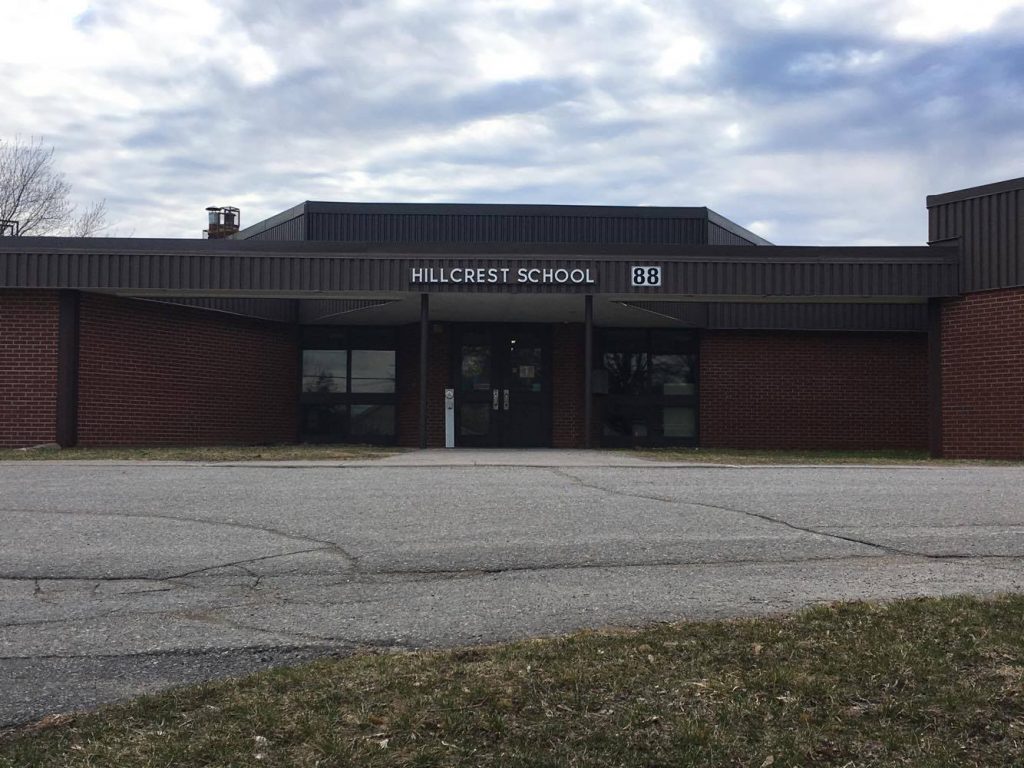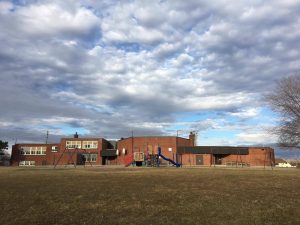Looming school closure leaves special needs student “high and dry,” concerned mother says

Hastings Prince Edward District School Board’s ongoing accommodation review process has left smaller, aging or rural schools – like Belleville’s Hillcrest Public School – on the chopping block for closure.
BELLEVILLE – Nine-year-old Kayden Verner has a routine and he sticks to it. He wakes up, catches the bus and in 20 minutes he’s at school – Queen Elizabeth in Picton. It’s quaint. It’s unassuming. It’s a place he feels comfortable.
That matters because Kayden is autistic. He responds well to what the low capacity school offers: small sized classes and attentive teachers. He was “thriving” there.

Vicky Verner says Queen Elizabeth’s planned closure leaves her autistic son, Kayden, “high and dry.” Photo courtesy of Vicky Verner.
Until the possibility of closing Queen Elizabeth became known last fall.
“What they’re proposing for the students….is not something that my son can do,” Vicky Verner told QNet News.
In November of last year, Hastings and Prince Edward District School Board’s board of trustees – its oversight body – okay’d accommodation reviews – formal procedures to consider closing or amalgamating aging or underused schools – for three regions under HPEDSB — Belleville, Prince Edward County and Centre Hastings.
With the launch of the accommodation review, which will take about seven months to finalize, the board also put forth preliminary, preferred recommendations or closure and consolidation “options” for schools struggling with low enrolment, limited capacity or ballooning renovation costs. The board’s proposed changes to Prince Edward County’s school system would see a number of closures and consolidations, including the shuttering of Pinecrest Memorial Elementary School, Sophiasburgh Central School and – Queen Elizabeth Public School, which is 266 students under capacity and in need of a $4.7 million face-lift, according to the board’s 2015-2016 findings.

Dwindling enrolment and an aging facility has put Picton’s Queen Elizabeth Public School, located on 35 Barker St., on the list of planned school closures. Photo by Brendan Burke, QNet News.
Sophiasburgh and Queen Elizabeth students, including Kayden, would be forced to attend Prince Edward Collegiate Institute in September.
For her son, Vickers says the potential move is not an option.
“He requires schooling on a smaller scale, smaller classrooms, smaller facilities. His autism couples with social anxiety,” Vickers said, alluding to the 600 plus students at Prince Edward Collegiate Institute – an enrolment number far higher than Queen Elizabeth’s.
Verner says the switch to PECI would spell commuting woes for her family, too. With Verner working during the day, Kayden would have to sit on a bus for hours a day to travel between the school and their home – something his mother says he can’t do. According to Verner the only other option is to home school Kayden – a course of action she again says isn’t the most viable.
“We’re left with homeschooling, which is directly against his diagnosis because he requires social communication with others. So we’re left kind of high and dry as to what’s best for what we can do for him,” Verner said, adding ” … where does my income come from because that would mean that I no longer get to go to work. If that’s the only option I’m forced to have to quit my job which would make it almost impossible to do. I’m very concerned.”
So is Kayden.
“He already cries at least every couple days because someone will bring up that the school’s going to close and he’ll have to go to the high school,” Verner said.
The Verner’s aren’t alone in their concerns about possible school closures. In rural Belleville, the fight to keep an area school open continues.
HPEDSB’s initial review for its schools located in the Belleville area has seen several small or aging schools land on the chopping block.
With 97 students enrolled at a school with a capacity of 168 and a projected “renewal need” of $1.4 million, Hillcrest Public is one of them.

With a renovation costs at $4.7 million, Hillcrest Public School, located at 88 West St. in Belleville, is slated to shut its doors. Photo by Brendan Burke, QNet News.
Andy McDonald, a Belleville resident and former student at Hillcrest, is a member of the school’s Accommodation Review Committee – a group comprising a Hillcrest principal and teacher, three parents, two community members and one intermediate or secondary student.
Accommodation Review Committees were established by the board to act as a “conduit of information shared between the school board and the school communities,” according to HPEDSB’s website.
With two sons attending two Belleville-area schools in the review process’ cross hairs – one at Hillcrest and one at Queen Victoria – McDonald says the news of Hillcrest’s proposed closure felt like a “sense of loss.”
“It was a good atmosphere. I spent a lot of time in the neighbourhood and it is a close-kit community. It’s a unique geographical location that I think it warrants a public school,” McDonald told QNet News.
In his role with the committee, McDonald says he’s tasked with looking over board proposals while volleying back any alternative suggestions or concerns. One of McDonald’s tabled suggestions is to erect a new building on Hillcrest’s old site with adjusted boundaries that would attract more students.
Sara Lucas-Oliver, another former Hillcrest student, also lamented the possible closure of her childhood school – but for reasons that go beyond the shuttering of its doors.

With a potential loss of ample green space, former Hillcrest Public School student Sara Lucas-Oliver says the school’s looming closure threatens to take away an important part of learning – physical education. Photo by Brendan Burke, QNet News
“I just think it’s a shame. A good portion of my learning is wrapped up in being outdoors and exploring and being able to run and jump and play so that I could burn off some energy to come in and pay attention,” Lucas-Oliver said, adding the school’s spacious grounds and ample playing areas facilitated her desire to play and learn.
Without the kind of space provided by Hillcrest, Lucas-Oliver fears kids will miss out on an important part of physical education.
Lucas-Oliver’s memories of tobogganing and playing marbles at recess – all under the watchful eye of teachers – are closely tied to a sense of community.
“You knew everybody because the parents were involved in PTA, they used to volunteer at the school, at the library…now that these kids are going to be bused and shipped all over, they’re kind of losing a sense of community.”
“And it’s nice to have a small school you get to know the kids better, you get to know the teachers better, the teachers have a better chance of seeing the kids for who they really are,” Lucas-Oliver said, adding that her hopes of sending her own children to the same, small school are now dashed.
From the school board’s perspective, Hastings Prince Edward District School Board’s communication’s officer Kerry Donnell told QNet News that concerns about community erosion have been heard loud and clear.
“That’s something we hear a lot and that’s a discussion that’s happening in the province. Schools in many, many cases, particularly in the smaller communities in rural Ontario, schools are the hub of the community.”
Donnell added, ” It’s a really sensitive situation and through this public input process we are hearing community members speak up in the regard, and trustees are hearing their messages.”
Donnell also expressed some of the positives that could be associated with the accommodation review process.
“Let’s say there are two schools in close enough proximity where they’re maybe 60 per cent full. There’s 40 per cent of space that’s empty at each school. Bringing schools, bringing students together allows for better programming to happen.”
On the concerns of special needs needs students like Kayden, Donnell said, “transitional plans are being developed in support of safe and inclusive transitions for all students, whether it’s a student with special needs or a student not with special needs, each student is treated with respect and care and we’re looking at each one when and if a transition needs to be made.”
While Vicky Verner says she’s received compassion from school board representatives, it’s not enough until the kids mean more than the bottom-line.
“There’s an added side to the money, we have to think about the children.”
A number of public meetings have been held on school closures in each affected region.
Belleville’s third public meeting will take place on Wednesday, April 19, with Prince Edward County’s next public review meeting slated for Thursday, April 20.
The board of trustees will make a final decision on June 19.
 Print This Post
Print This Post






